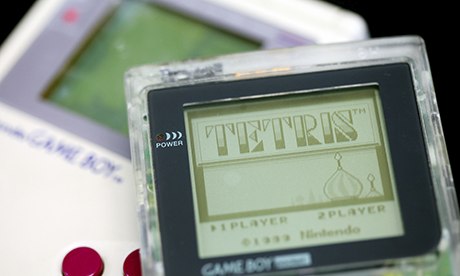Nostalgia is a funny thing in the digital age. Take Throwback Thursday, beloved of the generation known as millennials (people who were children in the year 2000). Throwback Thursday is a Twitter and Instagram phenomenon in which 25-year-olds post pictures of themselves at 20 and loudly philosophise about how and why everything has changed since those halcyon days. To which you'd be perfectly within your rights to reply: hey sunshine, this is not visual proof of your patriotic contributions during the great war, this is Warwick University's freshers' week in 2008.
And yet if you did say that, you'd be missing a trick. Because nostalgia is a completely different beast to generations who have grown up documenting their lives online. It is no longer an internal emotion or a quiet yearning for what has passed. Instead, it is a deafening roar of collective online voices about how far we've come, how we can present that progress, and how our teenage identities on MySpace can be reconciled with our twentysomething personas on Facebook.
Such behaviour shouldn't be too surprising in a cohort of people who actually buy assorted "vintage" hand-me-downs for more than new clothes. But things really do move lightning-fast in the digi-world, so why shouldn't we become nostalgic in a timeframe that might otherwise seem ridiculously premature? Remember the man who bought $27 worth of bitcoins in 2009, forgot about them for a while, and recently found out that they're now worth $886k? (OK, the story only broke yesterday, but bear with me while I reminisce). His windfall is testament to how digi-time is monumentally different to real time.
If you need further illustration of this, then look no further than the widespread excitement about the just announced 2014 Digital Revolution exhibition at the Barbican in London, which is due to showcase Gameboy, Tetris and MacPaint devices (no word yet on whether side ponytails and Jumanji T-shirts are compulsory for entry). The show promises young adults, hyped up on Sega Sonic, earnestly discussing how you couldn't use the phone while you were on the internet in the good old days. Like Digital Archaeology, a similar exhibition that was developed as part of Internet Week Europe 2010 (yes, really) and showcased "a selection of the most significant sites of our time", it draws attention to how far we've come in a short space of time. The internet is still very young, yet we can already fill galleries with its many different incarnations.
There are more reasons to be nostalgic about the digi-world beyond fond conversations about nights spent on MSN Messenger. For instance, the surge of technological creativity that accompanied the opening of the App Store and a supposed new age of internet democracy is worth being nostalgic about. In the last couple of years (decades in Apple-speak), the platform has instead been awash with refinements of existing APIs, put together with very little innovation. By remembering our initial enthusiasm for such new forms, perhaps we can reignite those fires of inspiration.
Willard Foxton argued recently in the Telegraph, that there was no point in teaching children how to code because it's an "extra difficult, boring subject" with few applications. Foxton is wrong, of course; the point of teaching coding is not just to develop a useful amount of future computer programmers, but to give children the tools to be creative in the digital world. Creative coding is as nuanced an outlet as any other form of expression and has the potential to entirely reshape the cyberworld as we know it, once again.
So long as nostalgia drives us forward as well as making us glance back, then it can be a powerful force. And if we don't teach our kids about that, then we won't have anything to feel nostalgic about in three years' time.























Comment from the paper
Hala Al-Dosari: King Abdullah’s gone, but the Saudi monarchy’s pact with the mosques remains
Martin Rowson: Martin Rowson on the death of King Abdullah – cartoon
Christie Watson: If I were queen for a day, this would be a month of real food, not detoxers’ nauseous green slime